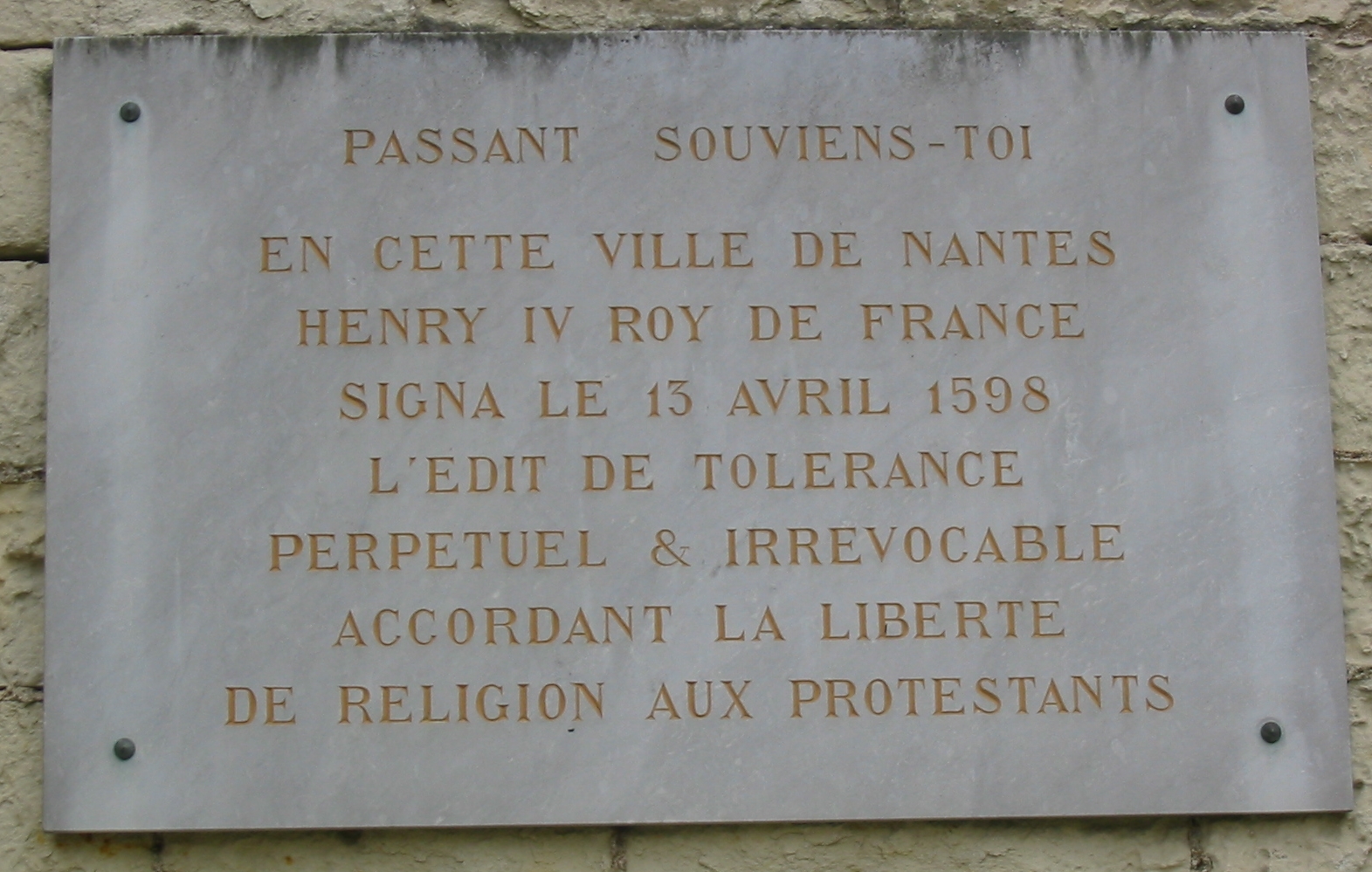It happened today - October 18, 2015
 Well, it was good while it lasted. Sort of. But October 18 is the anniversary of the 1685 revocation of the Edict of Nantes promising toleration to French Protestants, promulgated in 1598 by Henri IV. And the bad thing is, no one was really surprised. Tolerating religious diversity was something French rulers knew in their heads was a good idea. But somehow they never believed it in their hearts.
Well, it was good while it lasted. Sort of. But October 18 is the anniversary of the 1685 revocation of the Edict of Nantes promising toleration to French Protestants, promulgated in 1598 by Henri IV. And the bad thing is, no one was really surprised. Tolerating religious diversity was something French rulers knew in their heads was a good idea. But somehow they never believed it in their hearts.
Now Henri IV himself actually might have believed it. A Protestant by conviction and a Catholic by expedience, he had seen first-hand the damage religious intolerance caused, barely surviving the St. Bartholomew’s Day massacre, converting at least formally to become king, and ultimately being assassinated by a Catholic fanatic which, admittedly, came too late to influence his policy. But for most French monarchs and the French Establishment noble and clerical the necessity of tolerating Protestants to avoid bloody civil war, or stop it, or keep it from erupting again, or stopping it again once it had, was a purely practical business. If it hadn’t been necessary it never would have been done on principle. And once it stopped being necessary it wasn’t done at all.
The Edict of Nantes itself did not extend “religious” toleration. It only sheltered Protestants and only because it had to. Parts of it were revoked by Louis XIII in 1629 after yet another religious war in which the King’s forces, led much of the time by Cardinal Richelieu, devastated and captured the most important Protestant stronghold of La Rochelle. By 1685 the Protestants were no longer a significant threat, so Louis XIV trampled their rights from a position of strength.
Well, yes and no. The trouble with autocracy is that its strength is brittle. France was supposedly gloriously absolute. But it lacked the dynamic resilience of the Anglosphere precisely because tolerance of diversity was a tactic not a principle. Even Britain struggled in practice with what it embraced in theory but France never really embraced it in theory and it showed.
Still does, in fact. Even the French Revolution, supposedly a dramatic change of course, resulted in a secularism as intolerant as the Catholicism it replaced. And to this day the French have a tendency to seek solutions to policy problems in regulated uniformity not decentralized spontaneous order.
Incidentally there is no extant copy of the original Edict of Nantes. That it was considered not worth keeping unlike, say, Magna Carta tells you a lot.